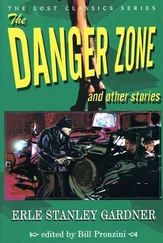Casey said something. She saw his lips move but could not hear him. Over the years she had come to dread every minute they spent together, what with all his touching and petting, stroking and pressing and cooing. Her revulsion was sometimes so violent that she barely made it to the bathroom before vomiting. It had taken almost unimaginable strength not to scream and claw the old devil’s eyes out, but she had managed it. Had to, really. No other choice. There was too much at stake. And oh, how she had laughed inside when the code finally came to go forward: Take out the trash .
After a while she walked to the lab’s primary incubator, a stainless steel box the size of a refrigerator. The unit had an exterior glass door and four separate interior chambers with their own hermetic glass doors. The chambers allowed microenvironment management. In each one, the type and intensity of light, mixture of atmospheric gases, temperature, humidity, ionization, electromagnetic fields, pressure, and other factors could be precisely controlled.
All the chambers contained petri dishes in which bacteria were growing—these were the colonies of ACE that Lew Casey had been working with. The genetically disrupted bacteria showed as bright red and green and orange splotches on the tea-colored agar growth medium in the dishes. Flemmer removed from her biosuit’s thigh pocket a slim, three-inch-long, battery-powered bulb capable of emitting intense ultraviolet radiation.
She pushed a button on the unit’s base and it glowed with harsh blue light. She opened the door to the top incubator chamber, passed the UV wand over the cultures, and closed the door. She repeated the action in the other chambers. She closed the incubator’s main door, pocketed the wand, and looked around the lab. Nothing appeared out of order, other than Lew Casey lying on the floor. She left him in the lab, deconned, went up to his office, and retrieved the note she had left for him earlier; given the hour, she was confident no one else would have seen it. They would find him tomorrow and it would be an obvious accident, stress and exhaustion and the debilitating emphysema all combining to produce tragedy.
For too much of her life Evvie Flemmer had lived alone in places without light, small dark rooms and apartments with alley views. Now she would change her appearance and her fingerprints with the best plastic surgery money could buy. Slim and beautified, she would purchase a villa in the south of France—Provence, nothing splashy, but spacious and very old. It would have thick stone walls covered with stucco the color of cream, laced with green ivy. The orchard trees would be heavy with pears hanging like great drops of gold. Best of all, there would be light. The villa would have tall windows through which pure light would stream and collect in bright pools on floors of ancient oak. She would never live in darkness again. And this she knew: there would be no fear of the purifying light of Provence. Jocelene Alameda Tremaine would never fear anything. That was the name she had given Mr. Adelheid for her new identity. So Jocelene, not Evvie, would soon be enjoying Dom Pérignon in the master suite of a superyacht named Lebens Leben , sailing east into the sunrise of a new life.
HALLIE AND CAHNER MADE IT BACK TO ROARING RIVER CAMP, the place they had last seen Bowman; both of them were staggering with fatigue. Without even speaking, too tired to fix food, they found sleeping spots and collapsed into their bags.
Hours later, she was dreaming of Bowman again. He was leaning over her face, fingertips brushing her cheek, whispering something, his lips touching hers. His hand moved down along her neck, slipped under the sleeping bag, and settled on her chest, cupping her breast. She moved under his hand, moaning, as his fingertips caressed.
Please , she said in her dream. Please yes .
But his hand slid away and she dropped back down into sleep.
“Hallie.”
Bowman?
“Hallie, wake up, I have something for you.”
Groggy, she opened her eyes. Her sleeping area was illuminated by the glow from a helmet light, but it wasn’t Bowman’s. It was Al Cahner’s. He was down on one knee beside her sleeping bag, holding a steaming mug. “I thought you might like some tea,” he said, putting his face close to hers so that he didn’t have to shout.
She came fully awake, pushed the sleeping bag down, and sat up. She took the proffered mug and sipped.
“Careful, it’s hot,” Cahner warned.
It was, but it was strong and thick with sugar and powdered milk and she thought she had never tasted anything better. She blew over the tea’s surface, drank, felt energy surge through her.
“This is wonderful. Thank you.”
“My pleasure.” He sat close beside her, cross-legged, smiling as she drank and came fully awake. “You slept a long time.”
“Have you been up long?”
“Oh, a while. How’s your hand?”
She flexed it very gently, grimaced. “Sore as hell. But nothing life-threatening. It’ll heal. How are you holding up?”
“I’m good,” he said. “Really good.”
She looked at him. “You sound almost cheerful.”
He heard the surprise in her voice. “Well, we’ve got the moonmilk, we’re alive, we’re on our way out. What’s not to like about that?”
Not much, except for the fact that three good people are dead , she thought, but she didn’t say it. She knew that in one sense he was correct. The moonmilk was the mission, and they were close to completing it now. That was the most important thing. The three deaths had been horrible, but they might well prevent hundreds of thousands— millions , maybe—of more agonizing deaths. And all of them had come into this thing with their eyes wide open. “You’re right,” she said. “I’m sorry, Al. I’m tired. And we’ve lost a lot down here.”
He nodded gravely. “We have indeed.” Sighed, looked away, then back at her. “I’ve got some MREs ready to heat up over at the kitchen,” he said. “Scrambled eggs and bacon. Are you hungry?”
She was . “I’ll be right over. Give me a minute.”
“Sure.”
He moved off. She shucked out of the bag, pulled on her suit, boots, and helmet, and made her way over to the kitchen. Cahner was already there with the hot MREs. He refilled her mug with steaming black tea, handed her a foil pouch. They stood spooning up the food. The eggs actually tasted like eggs, and the bacon bits were crisp and smoky-flavored. The tea and the warm food began reviving her. She was about to thank Cahner for making breakfast when he bent down to retrieve something from his pack.
It was Bowman’s red flask of rum. She watched, surprised, as he unscrewed the top and poured a healthy dollop into his own mug. He started to add rum to her tea, but she put her hand over the mug to stop him.
“That’s Bowman’s,” she called to him. “How did you get it?”
“I took it from his pack before we left this camp the last time.” He shrugged. “I mean, it’s not as if he was going to need it anymore.”
That was obviously true, but the matter-of-fact way Cahner said it bothered her.
“Really, you should have some,” Cahner persisted. “I don’t think he would have wanted it to go to waste. There’s nothing wrong with enjoying ourselves a little bit now, is there?”
“We’re a long way from being finished with this mission.” Despite herself, Hallie’s voice was taking on an edge. “It’s way too early to celebrate.”
Cahner regarded her neutrally, then drank again and set the mug down. He took a few steps closer, until they were standing at arm’s length. “You’re not often wrong, Hallie, but this time you are. It’s not too early to celebrate at all.”
Читать дальше












